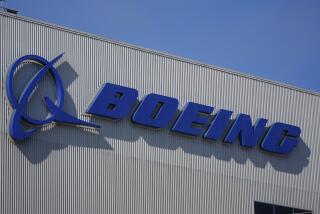UAW Retreats at U.S. Honda Plants : Drops Election Plans; Worker Support Apparently Fades
- Share via
DETROIT — In a major setback to the union’s efforts to organize the growing number of Japanese-owned auto plants in the United States, the United Auto Workers said Monday that it is dropping its bid to hold a union election at Honda’s plants in Ohio.
With its support apparently waning among workers at Honda’s auto and motorcycle assembly complex in Marysville and its engine production facility in Anna, the union withdrew its earlier petition with the National Labor Relations Board asking the government to schedule a vote by the company’s workers on joining the UAW.
Aggressive Campaign
The labor board had been scheduled to hold a hearing today in Marysville to set a date for the election.
After an aggressive campaign late last year, the union had obtained enough signed union cards from Honda workers to force the government to call for an election in December. The union needed signed cards from at least 30% of Honda’s 2,500 workers in order to call for an election, and it then needed to win a majority of the votes in order to win the right to become the collective bargaining agent for Honda’s workers. But just before the scheduled December vote, the UAW filed unfair labor charges against Honda for alleged election campaign violations. Among other things, the union charged that the company had funded an anti-union group set up by employees who wanted their co-workers to reject the UAW in an election. As a result, the vote was delayed until the labor board investigated the charges, which were dismissed earlier this year.
The delay apparently worked against the union. Honda, which is in the midst of a huge expansion project at its Marysville plant, has hired several hundred new employees in recent months, diluting the union’s strength among its work force.
At the same time, Joseph Tomasi, a UAW regional director who has been coordinating the organizing drive, conceded that confusion among the workers over the union’s decision to file unfair labor charges just before the election hurt the union’s chances in a new vote. He also charged that the anti-union group, which has continued to operate, has successfully spread “misinformation about the union” in the plants.
“All (of those factors) combine to create a poor climate for a representation election at this time,” Tomasi said.
The UAW, which has tried unsuccessfully since 1979 to win over Honda’s non-union work force, said it will still continue its organizing campaign. “This is not an admission of defeat,” Tomasi said.
“We just decided this was not the right time for an election,” UAW spokesman Dick Olson added. He insisted that the UAW still plans to step up its organizing drive at Honda over the next few months, with additional resources earmarked for its Marysville office.
Honda Officials Pleased
But Honda officials were clearly elated by the UAW’s decision.
“We have always said there was little support for the UAW at our plants,” Honda Vice President Al Kinzer said. “It was clear to us, and it is now clear to the UAW, that a majority of our workers just are not interested in a union.”
The union’s setback at Honda comes at a time when more and more Japanese auto makers are planning new non-union plants in the United States, threatening the UAW’s traditional monopoly on labor in the domestic auto industry.
Honda and Nissan already operate non-union plants here, while Toyota plans to open a non-union facility in Kentucky by late 1988.
Mitsubishi, which is planning joint production with Chrysler at a new plant in Illinois beginning in 1988, has also indicated that it will fight union representation.






